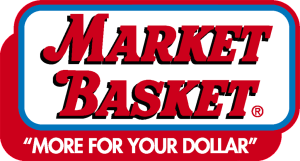Market Basket shows the staying power of “analog” customer experience
Living in greater Boston, I have a pretty decent choice of supermarkets along the price spectrum. At the higher end there is, of course, Whole Foods, the destination for products such as organic quinoa and $20 per pound imported specialty cheeses. In the middle are the chains such as Stop and Shop and Trader Joe’s, and at the lower end are the big box store chains like Walmart, Target, and Costco. Then there’s Market Basket, which is a regional chain that offers the same products and quality as the mid-range stores, but at significantly cheaper prices. In fact, the store’s tagline is “More for your Dollar.”
A Retail Throwback
Market Basket stands out from the pack since it has maintained these cheaper prices and a ferociously loyal customer base while bucking the conventional wisdom of American retail in two ways:
- Remaining defiantly analog: Market Basket’s digital strategy consists solely of a website which has the usual flyer-type information that websites have had since the 1990s: store locations, hours, company news, and printable coupons and circulars. It offers no e-commerce options, no multichannel offers, no dazzling interactive experiences – just the facts.
- Emphasizing employee welfare: The company pays its staff well above minimum wage ($12 per hour, compared with $8 in Massachusetts), provides comprehensive healthcare coverage and guaranteed sick leave even when it is not legally required to do so, and has an employee profit-sharing program.
More significantly, it has kept to this strategy and grown to be a $4.6 billion business that generated a profit of $217 million, while at the same time offering prices that are around 20% lower than those of their main competitors. The company operates 71 stores and 25,000 employees across Massachusetts, Maine and New Hampshire, an area with a population of about 9 million people. Some of this growth has been relatively recent: after Arthur T. Demoulis took over as CEO in 2008, he added 15 additional stores in the region, some during the worst of the economic downturn.
However, this growth has been against a backdrop of bitter feuding between the different sides of the Demoulis family, who have owned and operated the business for nearly a century. In late June, Demoulis family members on the company’s board ousted Arthur T. from the CEO seat along with two other senior executives.
#youcan’tfirecustomerswequit
This would be just a local story of a vicious family business feud that would probably not make it beyond local media outlets, were it not for the prominent role Market Basket plays in the lives of its employees and customers in the region. Once employees got wind of Arthur T’s ouster, many walked off the job in protest – managers as well as line-employees – vowing not to return until Arthur T. was reinstated. They left fresh food to rot in warehouses and stopped stocking shelves and generally doing many of the functions that keep the low-margin supermarket business profitable. Even more notably, customers began boycotting the stores and participating in demonstrations alongside employees, raising awareness of the event through social media and print ads in local newspapers, gaining coverage nationally in CNN, Fortune, and various other outlets and internationally via the BBC.
While some employees are still showing up for work, the promise from the new CEO that they could come back to their jobs with no repercussions has largely fallen flat, and the job fairs that the company has been holding to replace the striking workers have been poorly attended. New wrinkles continue to appear daily: that Arthur T. has offered to buy out the remaining shareholders, that the board is considering several bids from other chains and private equity, and that new rallies of employees and customers are being held at company headquarters and other stores.
Digital disruption does not mean analog is not important
At this time it remains to be seen how this situation will be resolved as it moves into its fourth week, and as the media theorizes about what it all means to American labor, shareholder value, etc. One thing is blatantly clear: the “analog” side of customer experience remains vitally important even as digital is disrupting whole industries. We’ve said this before in our research, where one of the 8 core competencies a business requires for its customer experience strategy to provide a bridge between analog and digital worlds. We’ve also already pointed out evidence that employee engagement is tied to the ability for an organization to successfully pursue its CEM strategy. Market Basket may not be the most high-tech retailer out there, but it has managed to build a brand that inspires a degree of loyalty in its employees and customers that the most digitally savvy companies would envy.








